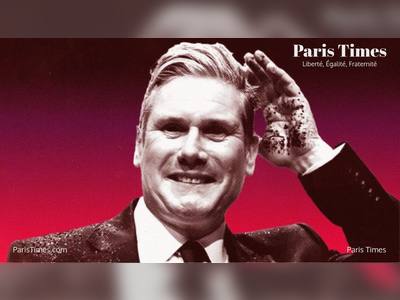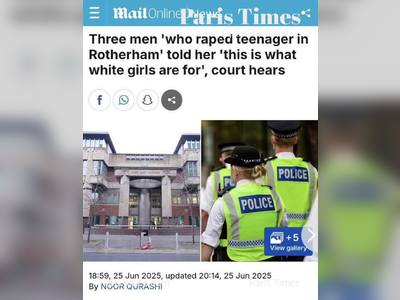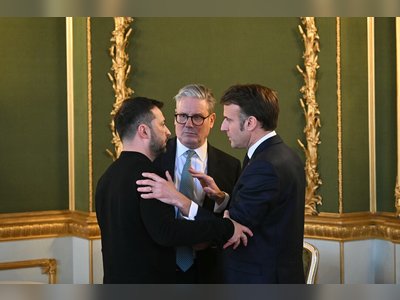Controversy Surrounds France's 2026 Budget Discussions and Retirement Reforms
Pierre Moscovici rejects François Bayrou's 'blank year' budget proposal while unions express outrage over proposed retirement age increase.
Pierre Moscovici, the first president of the Court of Auditors, has publicly opposed the latest proposal by François Bayrou regarding the 2026 budget.
In an interview with RadioJ, he expressed his dissatisfaction with the idea of a 'blank year'—a proposed budget freeze—that he believes does not facilitate necessary reforms of public policies.
Moscovici stated that such a measure, termed a 'one shot', would only be effective once and would fail to address the long-term financial adjustments needed in subsequent years.
Bayrou, the Prime Minister, is expected to outline his budgetary orientations by July 14, aiming to identify €40 billion in savings.
Among the options discussed is the contentious 'blank year' proposal which calls for a budgetary freeze.
In his remarks, Moscovici emphasized a preference for structural approaches to public spending, arguing that effective reform is essential rather than merely applying superficial cuts.
He indicated that significant efforts toward budget savings should be distributed among various public institutions, including the state, local governments, and social security, based on the capacity to contribute.
Moscovici pointed out that public spending in France currently stands at 57% of GDP, the highest rate in Europe.
He noted that a gradual return to 54% to 55% would merely result in a slight reduction without enforcing austerity.
Meanwhile, discussions surrounding retirement reforms have intensified, particularly following the release of a controversial report from the Council for Orientation on Pensions (COR).
This document suggests raising the legal retirement age to 66.5 years by 2070. The proposal has faced strong backlash from labor unions, which claim it fails to consider alternative solutions.
The CGT union criticized the report, claiming it serves political interests and accuses Gilbert Cette, the president of COR, of being on a 'mission' from President Emmanuel Macron.
The CGT argued that the COR’s report focuses narrowly on increasing the retirement age while ignoring other potential recommendations.
As the dialogue between social partners approaches a conclusion slated for June 17, union representatives, including Yvan Ricordeau from CFDT and Éric Coquerel from LFI, have expressed their concerns that the COR's recommendations promote unilateral policies rather than engaging in broader, more inclusive discussions regarding pension reforms.
The economic backdrop illustrates challenges facing France, with recent data indicating a decline in industrial production and widening trade deficits.
According to reports, industrial output decreased by 1.4% in April, ending two consecutive months of growth, while the trade deficit expanded to €7.4 billion.
The energy sector has notably impacted these economic figures amidst varying conditions, including unusually mild weather affecting energy production.
As these financial and social issues unfold, the implications of the proposed budget measures and retirement reforms remain a crucial talking point in the French political landscape.
In an interview with RadioJ, he expressed his dissatisfaction with the idea of a 'blank year'—a proposed budget freeze—that he believes does not facilitate necessary reforms of public policies.
Moscovici stated that such a measure, termed a 'one shot', would only be effective once and would fail to address the long-term financial adjustments needed in subsequent years.
Bayrou, the Prime Minister, is expected to outline his budgetary orientations by July 14, aiming to identify €40 billion in savings.
Among the options discussed is the contentious 'blank year' proposal which calls for a budgetary freeze.
In his remarks, Moscovici emphasized a preference for structural approaches to public spending, arguing that effective reform is essential rather than merely applying superficial cuts.
He indicated that significant efforts toward budget savings should be distributed among various public institutions, including the state, local governments, and social security, based on the capacity to contribute.
Moscovici pointed out that public spending in France currently stands at 57% of GDP, the highest rate in Europe.
He noted that a gradual return to 54% to 55% would merely result in a slight reduction without enforcing austerity.
Meanwhile, discussions surrounding retirement reforms have intensified, particularly following the release of a controversial report from the Council for Orientation on Pensions (COR).
This document suggests raising the legal retirement age to 66.5 years by 2070. The proposal has faced strong backlash from labor unions, which claim it fails to consider alternative solutions.
The CGT union criticized the report, claiming it serves political interests and accuses Gilbert Cette, the president of COR, of being on a 'mission' from President Emmanuel Macron.
The CGT argued that the COR’s report focuses narrowly on increasing the retirement age while ignoring other potential recommendations.
As the dialogue between social partners approaches a conclusion slated for June 17, union representatives, including Yvan Ricordeau from CFDT and Éric Coquerel from LFI, have expressed their concerns that the COR's recommendations promote unilateral policies rather than engaging in broader, more inclusive discussions regarding pension reforms.
The economic backdrop illustrates challenges facing France, with recent data indicating a decline in industrial production and widening trade deficits.
According to reports, industrial output decreased by 1.4% in April, ending two consecutive months of growth, while the trade deficit expanded to €7.4 billion.
The energy sector has notably impacted these economic figures amidst varying conditions, including unusually mild weather affecting energy production.
As these financial and social issues unfold, the implications of the proposed budget measures and retirement reforms remain a crucial talking point in the French political landscape.











